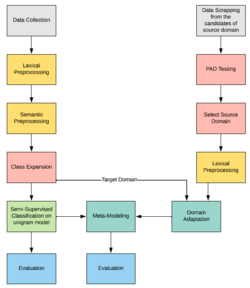Natural Language Processing in Project Management

The amount of semi-structured textual data being generated all over the world wide web has placed the limelight on the fields of Natural Language Processing and Text Mining. With the continuous increase in business for IT companies, there are a lot of new and diverse projects getting introduced and hence, the need for the project management tools which provide robust, efficient, and forthcoming services is rising. Bug Tracking System is one of such systems that help in making the job of every stakeholder easier. This research intends to utilize the textual data available on Bug Tracking Systems in the form of problem summaries, descriptions, and comments from the concerning people to determine the state of tickets (issues). The unlabeled textual data from the Bug Tracking System is subjected to a state of the art Class-Expansion Stage, that automates the process of labeling the ticket, intelligently based on their severity level and clustering (Constraint- Based and Density-Based). Class-Expansion stage yields 40% of the total data as labeled. Semi-supervised learners are introduced to consider labeled as well as unlabeled data for learning, and the results are way too promising when compared relative to a supervised learner. Evaluation Results of the majority-voting classifier for semi-supervised learners, show that the semi-supervised model is performing quite good as compared to the baseline supervised learner where the learner is not able to classify any instance in critical class, but the recall for the critical class in case of semi-supervised learners is still not good with it being at 53%. Since identifying critical tickets is of utmost importance for Project Managers, it becomes essential to improve the recall for the critical class. In order to deal with this, when sentiment analysis’ insights are introduced into the semi-supervised learners, the recall for the critical class improves up to 85% which makes the proposed solution super useful in cases where efficient classification among critical and non-critical classes is required.
This thesis has been supervised in collaboration with our industry partner initOS GmbH.



